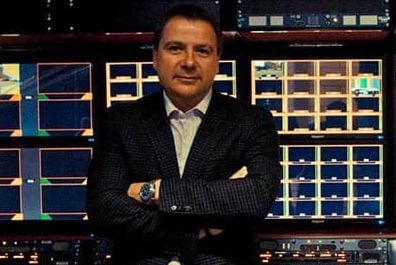Two weeks ago global provider of live broadcast facilities and production service Gravity Media revealed its latest acquisition – Telstra’s Chief Entertainment.
By James Manning
This week Gravity Media revealed the acquisition completed on August 30.
See also:
John Newton’s Gravity Media acquires Telstra’s Chief Entertainment
This is the fifth acquisition that Gravity Media has made since securing substantial investment from TowerBrook Capital Partners in September 2016.
In 2017 it took over sports production company Input Media, to enable the business to offer end-to-end solutions including high-end production and technical facilities, and Australian communications solutions company Stranger Designs to expand its event communications offering.
In March 2018 it bought Genesis Broadcast Services and immediately rebranded it as Gearhouse Broadcast Germany to serve the production markets of Northern Europe.
In July 2018 it acquired Proshow Broadcast, a supplier of mobile production solutions to broadcasters, producers and rights holders throughout the USA and Canada, which has since been integrated into Gravity Media’s Gearhouse Broadcast USA operations.
Gravity Media was started by CEO John Newton. He explained the origins of his 25-year journey to Mediaweek:
“I founded a company in 1994 that was sold to Gearhouse, then a listed UK company. Gravity Media was later set up to buy some of the assets back off that listed company. That happened in 2000 and I led the management buyout. Since then I have been chief executive and the majority shareholder of the group.”
Newton trained as an engineer and later worked in production. “I later moved from the technical side of production to the commercial side.” Although UK based, Gravity Media’s CEO lives in Sydney.
Gravity Media operates four brands in Australia – Gearhouse Broadcast, HyperActive Broadcast, Input Media and Chief Entertainment – with Newton telling Mediaweek it may group those brands together as Gravity Media in the future to simply the offer to customers.
Helping Gravity Media grow over the years have been many long-standing customers in various parts of the world engaging its services either weekly, monthly or annually. “We also have customers on the project side that we tend to work for on a bi-annual basis, often because of the nature of sporting events. That includes events like the football, rugby or cricket World Cups and the summer and winter Olympics.
“There has been a lot of consolidation in our industry in the past few years.
“There are three or four groups around the world that compete on the very large events because of the capital nature of the business.”
Of the major players, Newton noted NEP is the biggest, with Mediapro and Gravity Media other global giants.
Newton said it was hard to rank companies because of the different metrics that could be used. “If you judge on revenues then NEP would be the biggest by far. They are an equipment supply company with some production services. They would be followed by Mediapro who provide not only equipment, but they also own the rights to certain big sporting events. As an organisation it could be bigger than NEP by the nature of what it does.
“If you compare just on facilities, NEP would be the biggest followed by Euromedia Group, Mediapro and Gravity Media.”
Newton explained Media Gravity is partnered in the business by a private equity business Towerbrook Capital Partners, an Anglo American fund.
“When we work with private equity we set out what the landscape is and the core business and the risk. Our core business is in capital infrastructure and production services with a level of production.
“Would we go to the next level and buy events rights? Global events are so huge and so costly that under the way we are structured at present that wouldn’t happen.
“We are always looking at how we could diversify with the range of things we offer. Would we buy major sports rights – no.”
While sports coverage is key to the business, it works in many entertainment genres. “Reality TV is covered by us in a number of different ways. There is scripted reality, which they tend to shoot with camcorders and then they heavily post-produce it. We do provide that kind of equipment. It’s not capital intensive, the equipment, it is more labour intensive when you shoot it with a big post-production element.
“We do a lot of light entertainment shows – things like The Voice, The X Factor, Australian Idol-style formats, The Masked Singer etc.”
With a changing TV landscape, Newton noted the business has to adapt. “With 100s of channels of TV and streaming platforms – people consume media very differently. The content is produced differently for a different audience.”
Remotely produced events are something Gravity Media and others have been delivering for a decade. “They are not new. The ability to have less people at a venue and still send signals back reduces logistical costs. The technology will get better and less people will be needed on site. Artificial intelligence will soon play a part in cameras moving and tracking the play.”
The growth of streaming platforms has been good for Gravity in much the same way the explosion of TV channel choice has been.
“As long as people still consume media production will be required. Television studios and stages didn’t have very high utilisation going back a few years. Most of the big studio sites around the world are now locked out for three or four years.”
Globally Gravity deals with Netflix and Disney, among others. “Most of the major broadcasters in one shape or form. Out customers are three fold – broadcasters, rights holders and production companies.”
